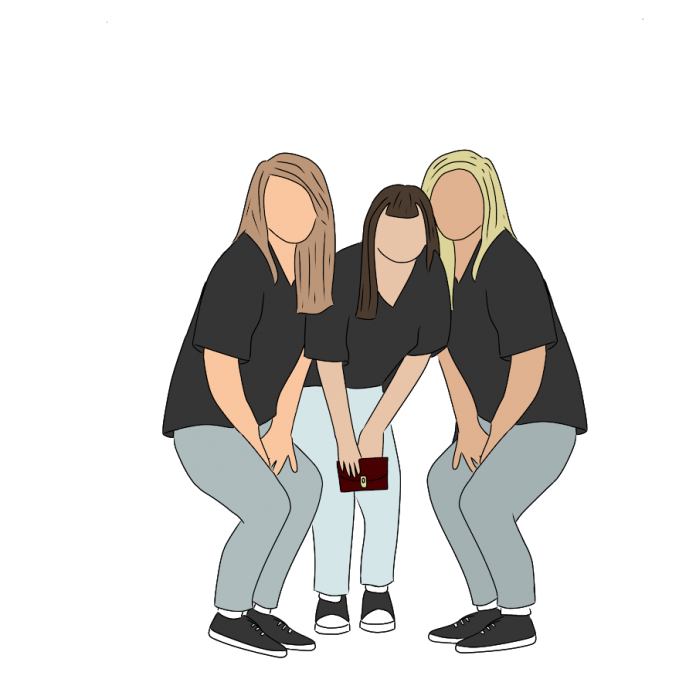When I told my friend that I rushed a sorority this fall, his first reaction was, “So, did you get hazed?”
It was a bad joke, and I didn’t get hazed, of course.
At the College of William and Mary, the Fraternity and Sorority Life scene is relatively low-key and tame. Still, my friend’s comment was relevant to a fact of recruitment that looms over the heads of potential new members: sorority recruitment can be confusing, stressful and intimidating. Formal recruitment is a ritualized process that relies heavily on face-to-face interactions, as that is how potential new members are supposed to find their “fit.” When the COVID-19 pandemic forced everything to move online, surely, the experience would feel similar to online classes: tedious, glitchy, exhausting and unexciting. Contrary to my hit-or-miss relationship with Zoom learning, I emerged from recruitment with a distinct sense of appreciation for Zoom recruitment — so much that I think the Panhellenic Council should consider permanently moving some parts of recruitment online.
For starters, the introductory videos during Open House Day were a fantastic way for the chapters to show PNMs what they’re all about. Chapter presidents usually deliver short speeches with anecdotes and mission statements, which are sufficient on their own, but the “wow” factor is missing without multimedia to spruce it up.
I wouldn’t have even been able to participate in recruitment had it been in person, as I am a remote student. I cannot begin to describe the sheer difficulty of forming meaningful connections with peers via my computer screen. Recruitment alleviated my struggle as it gathered hundreds of women with a shared purpose — to find community — who were eager to learn more about me.
Even if there aren’t remote students next year, the sheer time commitment may be prohibitive for non-traditional students. This year, the process was spread out over a week, whereas it usually would be crammed into two weekends, leaving little leisure time. Weekends are for students to focus on personal goals or work a part-time job — not throw themselves into successive conversations with strangers and try to determine who they want as their “sisters” for their college years.
A member of my sorority told me that in typical times, in the first few rounds, PNMs would stand in the lobby of a house and chat with someone for a few minutes before moving to someone else. The problem: there would be thirty to forty people talking at the same time. On Zoom, however, meeting individual members in breakout rooms better simulated an atmosphere where I could really get to know someone and gauge whether I could see myself in their sorority. Despite the occasional glitch and “wait, can you hear me,” I overcame the awkwardness soon enough, and most of the chapters were prepared to guide the conversations smoothly.
Another fact of Zoom that I’m sure most people can appreciate is the casualness. Feeling comfortable is the key to successful conversations during recruitment. Whereas typically, there is a “dress code” on the different recruitment days, it didn’t matter what you were wearing on Zoom — especially when some of the members were chatting with me on their beds. One could argue that in-person recruitment is very much about “pitching” yourself to be accepted into a social group.
The awkward and unrefined nature of a Zoom call made me worry less, throw my head back in laughter more and treat each conversation as just that — a chance to know someone. Although, I must add that back-to-back Zoom calls certainly took a toll on my well-being by the end of the week. That was a big downside.
Now that I’m in a sorority, I’ve admittedly returned to hating Zoom. By the same token, the more special events like Sisterhood Day and Preference Night still necessitate in-person interactions. Preference Night is the time where senior members talk about how much they love their chapter and, well, cry. It’s incredibly uncomfortable to watch someone cry on Zoom and not be able to comfort them — almost like I’m barging in on a private ceremony.
To be sure, no video conferencing platform will replace a conversation in-person. But formal recruitment places a significant burden on both PNMs and active members. It can feel like a competition to stand out in the crowd. The members, meanwhile, have to undergo recruitment preparation months beforehand. All of this stress is entirely unnecessary, and we have now tested and confirmed a viable alternative.
Email Linda Li at

